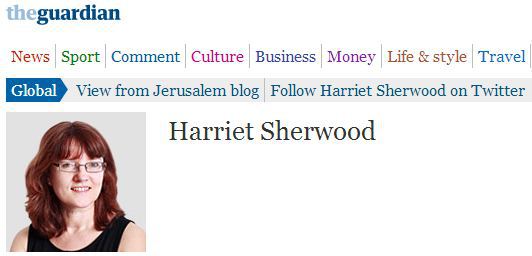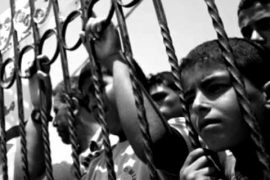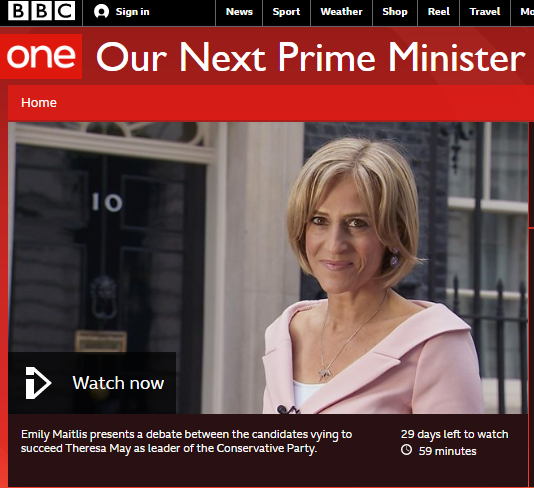Though Harriet Sherwood is no longer the Guardian’s Jerusalem correspondent, she continues to find ways to mislead readers about Israel. Sherwood, now the paper’s Religion correspondent, published an article (‘US anti-extremism group asks Israel to curb rightwing Jewish activist’, May 27) based on a statement by Anti-Defamation League calling on Israel to use all legal means possible against the leader of an extremist group called Lehava.
However, Sherwood fails to provide any context on the extremely marginal anti-Arab, anti-gay and anti-Christian hate group, and advances a highly misleading narrative suggesting that the group is representative of a ‘rising tide’ of right-wing extremism.
Here’s the entire article:
A US-based organisation that campaigns against antisemitism has taken the unusual step of calling on the Israeli government to act against an extreme rightwing Jewish activist with “abusive, racist, inflammatory and violent” opinions.
The Anti-Defamation League (ADL) has urged Israel’s attorney general to use all legal means possible against Bentzi Gopstein, the leader of Lehava – an extremist Jewish organisation that allegedly incites hatred against Arabs.
The activities of Gopstein and Lehava have “destructive implications to Israeli society and the Jewish people”, said a letter from the ADL’s Israeli executive director, Carol Nuriel, to the attorney general, Avichai Mandelblit.
“From our point of view as an organisation based in the United States, we see this hateful discourse as harmful not only to Israeli society, but also to the reputation of the state of Israel,” the letter says. The discourse is “used as a weapon by Israel’s enemies, who use it as a basis for their rushed conclusions and generalisations about Israeli society”.
The ADL’s move follows the launch of a petition by the Israel Religious Action Center (IRAC) asking Mandelblit to take action against Gopstein. By Friday, it had been signed by about 12,000 people.
Both the ADL and the IRAC say Gopstein and Lehava have encouraged “price tag” attacks on Palestinians and their property in response to moves by the Israeli authorities which the perpetrators view as hostile to settlers.
According to the IRAC, Lehava activists post more than 200,000 statements on social media every year, many of which are offensive and some of which include calls to violence.
“Gopstein’s Facebook page is filled with unequivocal expressions of hate, mostly towards the Arab population [but also towards the gay community, for example]. The opinions expressed on his page, by him and his followers are extremely abusive, racist, inflammatory and violent,” said Nuriel’s letter.
She also pointed out that Gopstein had advocated the burning of churches and has called Christians “bloodsucking vampires”.
The move by the ADL, an organisation known for its support of Israel, indicates the degree of alarm over the rise of the extreme right in the country, particularly among hardline settlers.
In April, Gopstein was acquitted of assaulting two leftwing activists after a judge said he could have mistaken them for Palestinians.
Lehava was launched in 2009 with the aim of preventing relationships between Jewish women and Arab men.
Sherwood fails to explain that Lehava has negligible support, and has been condemned by Israeli leaders from across the political spectrum. Within Likud alone, Knesset Speaker Yuli Edelstein, Public Security Minister Gilad Erdan and former Defense Minister Boogie Ya’alon have all called for the group to be banned. President Rivlin once characterized Lehava demonstrators as “rodents gnawing under the shared democratic and Jewish foundation of Israel”.
Even the right-wing group Im Tirtzu condemned the group as an “anti-Zionist, right-wing extremist group”.
In 2015, Ya’alon and the Shin Bet consulted with legal experts to determine if there was sufficient evidence to ban the group. Later that year, three Lehava members were found guilty in a Jerusalem court for their role in an arson attack on a school promoting Jewish-Arab co-existence.
Of course, the fact that Lehava is allowed to legally operate in Israel is no more indicative of a ‘rising tide of rightwing extremism’ than the fact that the Ku Klux Klan is legal in the US is suggestive of the growth of racist extremism in that country.
Sherwood’s focus on Lehava again demonstrates the Guardian’s tendency to exaggerate the relevance of isolated incidents and marginal Jewish voices in Israeli society in order to promote the desired narrative of a country heading towards the political abyss.





